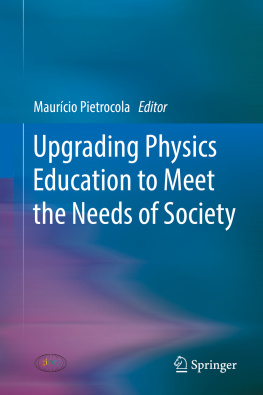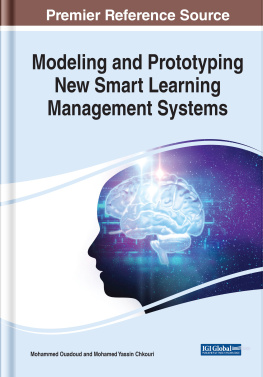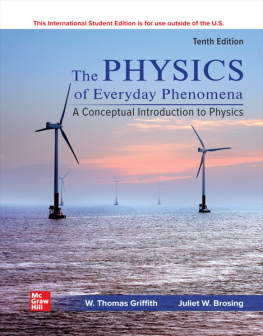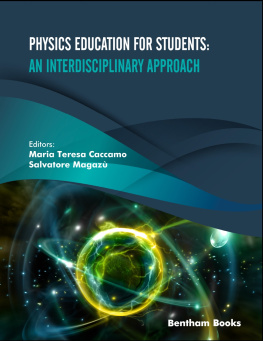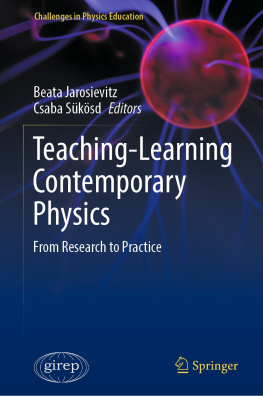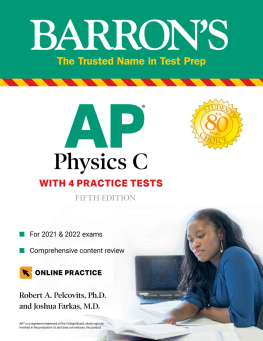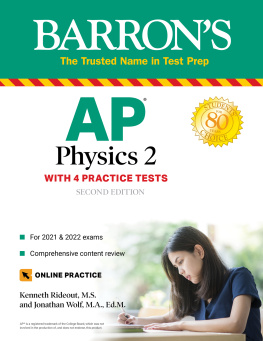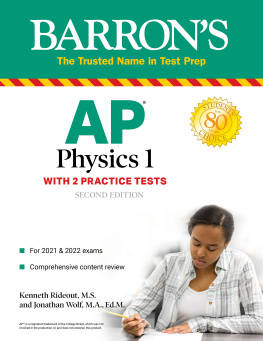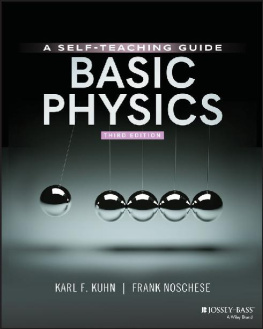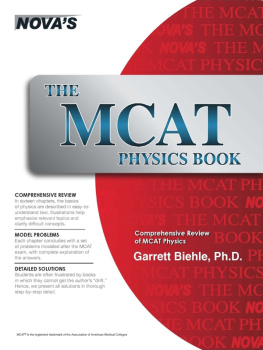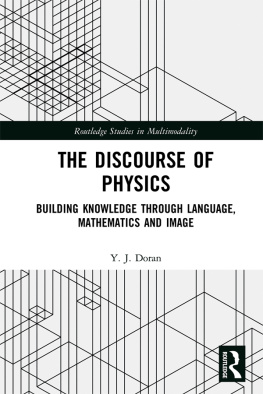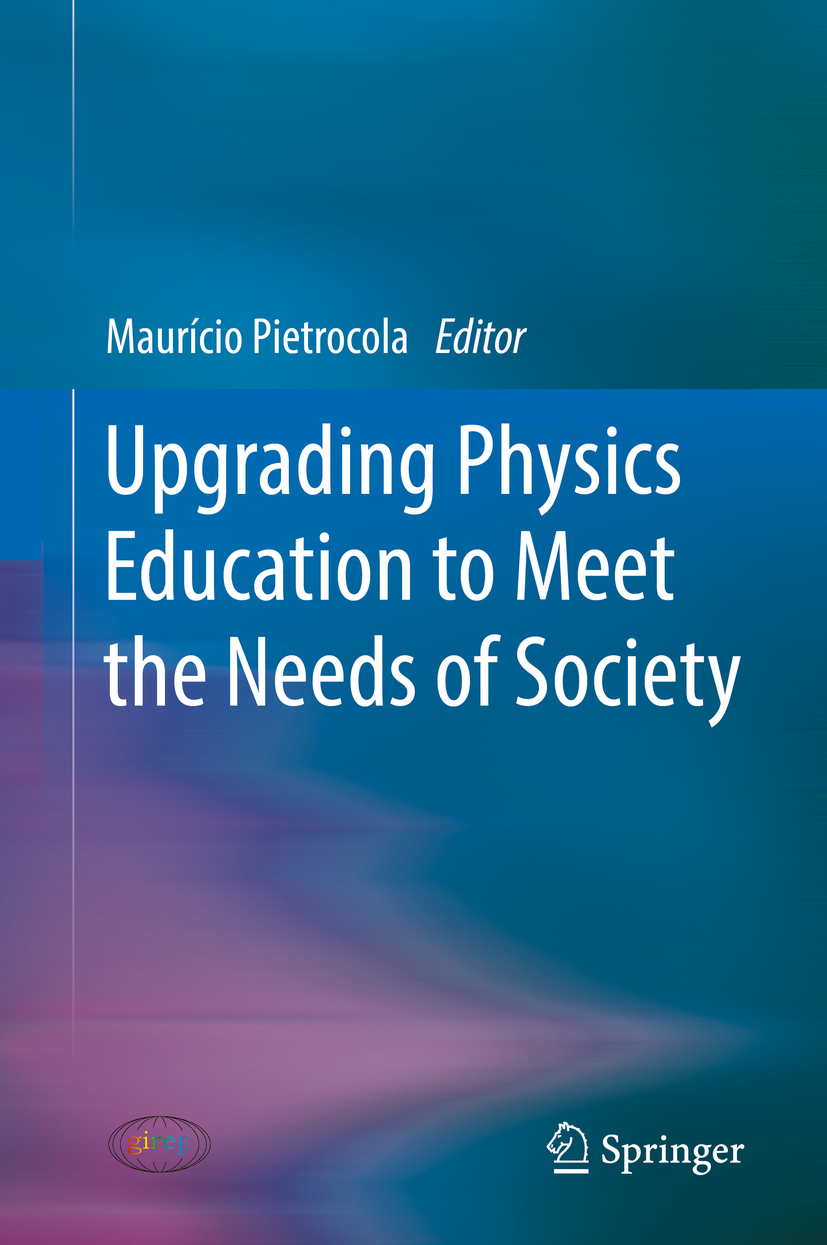Editor
Maurcio Pietrocola
Faculty of Education, Sao Paulo, Brazil
ISBN 978-3-319-96162-0 e-ISBN 978-3-319-96163-7
https://doi.org/10.1007/978-3-319-96163-7
Library of Congress Control Number: 2019930721
Springer Nature Switzerland AG 2019
This work is subject to copyright. All rights are reserved by the Publisher, whether the whole or part of the material is concerned, specifically the rights of translation, reprinting, reuse of illustrations, recitation, broadcasting, reproduction on microfilms or in any other physical way, and transmission or information storage and retrieval, electronic adaptation, computer software, or by similar or dissimilar methodology now known or hereafter developed.
The use of general descriptive names, registered names, trademarks, service marks, etc. in this publication does not imply, even in the absence of a specific statement, that such names are exempt from the relevant protective laws and regulations and therefore free for general use.
The publisher, the authors and the editors are safe to assume that the advice and information in this book are believed to be true and accurate at the date of publication. Neither the publisher nor the authors or the editors give a warranty, express or implied, with respect to the material contained herein or for any errors or omissions that may have been made. The publisher remains neutral with regard to jurisdictional claims in published maps and institutional affiliations.
This Springer imprint is published by the registered company Springer Nature Switzerland AG
The registered company address is: Gewerbestrasse 11, 6330 Cham, Switzerland
Foreword
This book is an initiative, recently promoted by GIREP by means of an agreement with Springer to contribute in physics education research and praxis with a series of publications. It contains selected contributions on the topic Contemporary Science Education and Challenges in the Present Society: Perspectives in Physics Teaching and Learning. By a peer review process involving 854 reviews carried out by 149 referees, we selected the papers published in this volume among 307 contributions we had already selected for the presentations in the Second World Conference on Physics Education (2nd WCPE). We have to thank Maurcio Pietrocola for editing the book and leading the peer review process after the organization of the 2nd WCPE and Claudia Haagen Schuetzenhoefer for managing the editorial process for GIREP.
GIREP is an international membership organization founded in 1966, open to academics, teachers, curriculum developers, and all other stakeholders with the concern to improve physics teaching and learning by means of physics education research (PER), innovative experimentation in physics teaching/learning, innovative materials and methods, suggestions for stakeholders, international cooperation in conferences, seminars, and selected paper books. In the past 50 years, 1400 physics education researchers, teachers, and other specialists of 72 countries shared their common problems, studies, results, and experience in GIREP. Out of researchers and teachers scattered in faraway schools and colleges and universities, GIREP created a community. From 1967 to 2016, GIREP organized 32 international conferences in cooperation with EPS, ICPE, MPTL, and UNESCO.
GIREPs main focus is to connect research and teaching from primary to university level. This is motivated by the following reflections. The quality of teaching is determined by cross-fertilization of research and praxis. Teacher education and teacher professional development need a connection with physics education research, and we experiment that this is not extensively done in the different countries. Continuity in vertical and in transversal perspective is very important. A large society engagement is needed to promote scientific learning, policies for teacher education, and quality in teaching and learning. We mainly focus on content research, because learning is content specific; subject matter and pedagogy are not enough for teacher professional development: there is a wide need on didactics on subject matter. Our goals are to improve practice by means of research (PER), to promote content structure research, and to explore teaching/learning processes for new topics conceptual learning and lab work, methods, strategies, and tools role in learning. Active research lines in GIREP represented in this volume are different: content-oriented theory, students conceptions/reasoning, students learning pathway and processes, developing content-specific tests, role of approaches, concepts, contexts, motivation for learning on specific topics, individuate conceptual profiles and parallel conceptions, variation theory, design-based research, curricular research, conceptual profile, learning progression, and teacher education.
In the last 5 years, GIREP formalized the cooperation with the following international bodies, signing agreements: American Association for Physics Teaching (AAPT), American Physical Society (APS), Education Division of European Physical Society (EPS-ED), European Science Education Research Association (ESERA), Inter-American Conference on Physics Education (IACPE), International Commission on Physics Education (ICPE), interAsian Scientific Education Research (iSER), Latin American Physics Education Network (LAPEN), Multimedia Physics Teaching Learning (MPTL), International Association of Physics Students (IAPS), and Japanese Physics Education Society (PESJ). In this framework, the exchange of research results and experience gain an open high scientific value for each GIREP conference and find a common working area initiative in the WCPE 4-year conferences.
The world of physics education research does not have a wide range of journals in which to publish and compare the results of their work. Making available in a book the best research contributions in physics education and significant teaching interventions presented at the 4-year World Conference on Physics Education, it seemed to us the best way to serve the research community and the stakeholder in the field of physics education. We hope this contribution will be useful to this community and to teachers in general. Comments and suggestions will always be welcome in order to better realize the mentioned GIREP objectives.
Marisa Michelini

